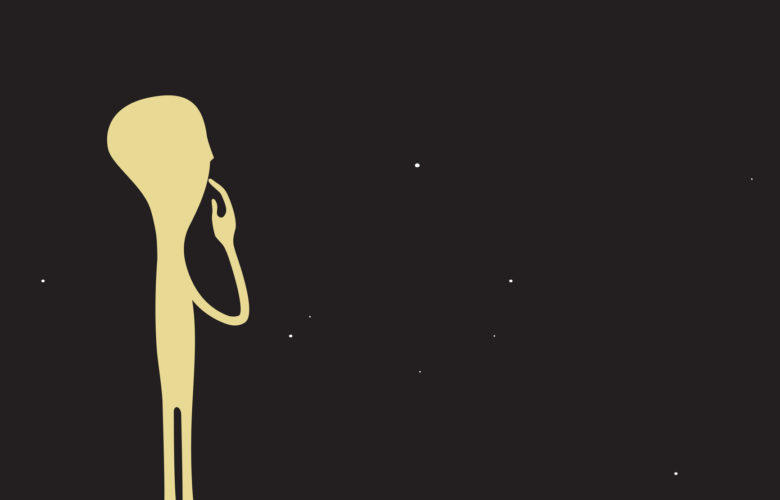When someone tells me they got their mRNA coronavirus vaccine injection there’s increasingly noticeable silence on my part. There’s an awkward pause until they say/text the next thing and then we go on, and I hope they don’t think much about my lack of response to the injection statement.
I’m worried about a two-tier social system developing: those who’ve received a pharmaceutically-created vaccine shot and those who haven’t. The vaccine I received in March 2020 was homeopathic. Since then my immune system has done an excellent job of overcoming the coronavirus with few symptoms. I was relieved today to hear an NPR discussion of “vaccine etiquette” that said it’s not polite to ask people outright if they’ve gotten a vaccine shot. (FYI: It’s also not polite to ask people who got it what their eligibility category was.)
It’s complicated and what it’s complicated by is fear. Well before the pandemic started, articles documented that this generation of parents worries more about their children than past ones. The increased splintering of American society into conservative versus liberal reflects a heightened fear state in everyone. It’s hard to tell if we became a nation of anxious Googlers because our fears have been fed by Google or if our constant worrying helped create all the Google-like resources. All this and more show how much more Americans feel worried and fearful than in the last century.
Many point to the increasing commodification of news as contributing to how much we worry. To make money, news has to attract viewers/readers and nothing attracts people as much as things that make us afraid. Likewise, Facebook has found it gets the most engagement from content that provokes fear. Fear sells and American culture is all about selling.
In our new millennium culture of constant fear and worry, we were primed for turning our fear of the coronvirus on each other. I’ve been more afraid of losing friends than of getting sick and I know others who follow distancing protocols less out of fear of illness than of upsetting others.
Having seen how we treat each other out of fear of the disease itself, I worry about how we’ll treat each other now that an injectable vaccine against the disease is slowly becoming available. I dread people who have gotten the injection choosing only to socialize with others who have been injected. I dread not being able to host an unmasked gathering in my home unless I get an injected vaccine.
I believe there’s much more to human health and disease than what Western medicine knows now, our Western medicine that has swallowed the world, pushing ancient healing practices aside to clear the way for United States pharmeceutical companies to make even more money.
Do I sound like a conspiracist? Like an anti-vaxxer? Do I sound anti-science? Yes, I do sound like that to someone who believes in American pharmaceutical-based medicine and no other forms of healing. But consider that 200 years ago Western medicine didn’t believe in germs. Getting doctors to wash their hands before performing surgeries took a long, slow shift in scientific thinking. So why do we believe we know everything now?
Today we look at those 19th century doctors who didn’t believe handwashing did anything and think they were bafflingly ignorant. I believe in another hundred years or so we’ll look similarly at today’s doctors who don’t believe there’s such a thing as the human biofield. We’ll marvel at how anyone thought six feet was enough distance to keep from passing disease. We’ll disdain 21st century doctors who thought only what could be physically measured was important.
It’s as if we’ve forgotten that the homo sapien species has existed for about 200,000 years and we couldn’t have possibly survived that long if drugs and surgery were critical to keeping us healthy. But apparently we have forgotten that and who helped us forget it? Well, American culture is all about selling, and drugs and surgery make money, so we’ve all been trained to believe we can’t survive without drugs and surgery.
It’s criminal that neither the WHO nor the CDC nor Dr. Fauci himself have once mentioned boosting our immune systems as a coronavirus defense strategy. Instruction on how to fortify our natural immunity should have been included from the very beginning and it’s infuriating that it wasn’t. But eating root vegetables and cutting down on chilled drinks doesn’t make anyone money, so Americans won’t even discuss it.
I’ve tried to say all this to friends and family, but the stark fear of a pandemic is not an ideal atmosphere for learning new things. I feel for the people who are terrified of bringing home the coronavirus to their old husbands and aging parents. I also feel for those facing peer pressure to conform to the virus-managing behaviors of those around them. But as the mRNA vaccine spreads throughout the population and the COVID case counts go down, I worry more for myself, that I’ll be at risk of having no social life because I don’t conform to the behaviors of the majority of my Chicago vaccine-seeking peers.

Last July I had the worst birthday of my life, which I imagine is what most people would say about their 2020 birthdays. I love throwing myself a birthday party with my favorite people and my favorite thing is when my July 24th birthday falls on a Saturday. A Saturday night party on my actual birthday feels like a confluence of the best events.
The last time my birthday fell on a Saturday was in 2010 when my then-husband forced me to cancel it. Back then I swore nothing would keep me from a big party the next time July 24th fell on a Saturday. Then eleven long years went by when that did not happen.
I wish very, very hard that Saturday, July 24, 2021 is a day I can celebrate with a group of my favorite people, unmasked and without fear.

You know, I love how you state, “I received a homeopathic vaccine.” I’m going to remember that phrase.
When people glowingly report that they’ve gotten the mRNA vaccine, my conversational gambit is, “Did you have any side effects?” They seem to so enjoy relating whatever happened (or didn’t) that the subsequent topic can change pretty easily.
I’ve felt afraid of a “vaccine passport” that wouldn’t recognize either past infection or any vaccine besides the mRNA. You’ve well pointed to an informal system that could be as bad or worse, enforced by friends and family.